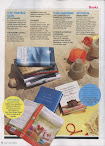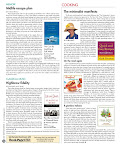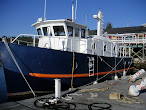"If we had said you can't leave until the fog clears, and that was 3 o'clock in the afternoon, looking back on it that would be preferable to the millions of dollars (the ship's owners) are going to pay for response," the Coast Guard's commandant, Adm. Thad Allen, told The Associated Press in an interview.
"I think controls on ships in low visibility probably is something you could look at," he said. He said the benefit of any new regulations would have to be weighed against the economic costs on the shipping industry.
Allen also discussed other possible responses to the spill that occurred last Wednesday morning when the cargo ship Cosco Busan, moving in poor visibility, sideswiped one of the supports of the San Francisco-Oakland Bay Bridge, spreading oil around one of the country's most famous and fragile ecosystems and shutting down fishing in the affected area.
Another would be to develop a "risk matrix" that could trigger controls on movement of ships when a number of factors, such as weather, tide and port congestion, added up to a risky situation.
After spending about 24 hours in San Francisco viewing the Bay by air and meeting with emergency crews, lawmakers and city officials, Allen stood by his initial defense of the Coast Guard's response to the spill. His agency has come under fire principally for a time lag of several hours between when officials realized the spill was 58,000 gallons — not 140 gallons as initially reported — and when that information was relayed to the public.
Allen reiterated that his impression was that crews were working so hard to respond to the spill that notifying city leaders and the public about its magnitude fell through the cracks.
"I don't think anybody was sitting there with a cup of coffee sleeping or anything like that," Allen said late Monday while en route to Washington from San Francisco. "But if we find that there was something that somebody should have been doing different, we would counsel them — we'll do whatever's indicated."
The National Transportation Safety Board is conducting an independent investigation of the crash and the Coast Guard's initial response.
Allen said his agency would work on how to respond to such a situation in the future.
"How do you handle a low-visibility situation when you can't ascertain how much oil's been released. That's a knotty problem," he said. "We've got to take that knotty problem back and work it."
Even if the agency had simply stated that an unknown amount of oil had spilled, then later released the accurate figure, "it wouldn't have been seen as somehow a betrayal of trust," Allen added.
Allen said Sunday night that he wanted records of communications between the crew of the Cosco Busan and the Coast Guard's Vessel Traffic Service released within 24 hours. The NTSB then took control of the transcripts and audio and has refused to make them public or say when it would.
"I laid down the marker. Hopefully that will prompt appropriate behavior" by NTSB, Allen said.
Mechanical failure has been ruled out in the crash and federal investigators are looking at actions of the crew and the local pilot. --From the Associated Press











0 comments:
Post a Comment